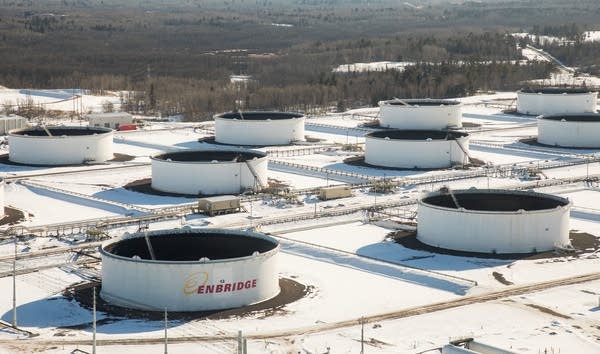Minnesota utility regulators give key approvals to Line 3 pipeline project

Enbridge Energy's Superior Terminal in February 2018. The terminal receives a vast majority of its oil from Canada and a lesser amount from North Dakota. According to Enbridge in 2018, 21 percent of all daily U.S. crude oil imports pass through the facility.
Derek Montgomery for MPR News file 2018
Go Deeper.
Create an account or log in to save stories.
Like this?
Thanks for liking this story! We have added it to a list of your favorite stories.


